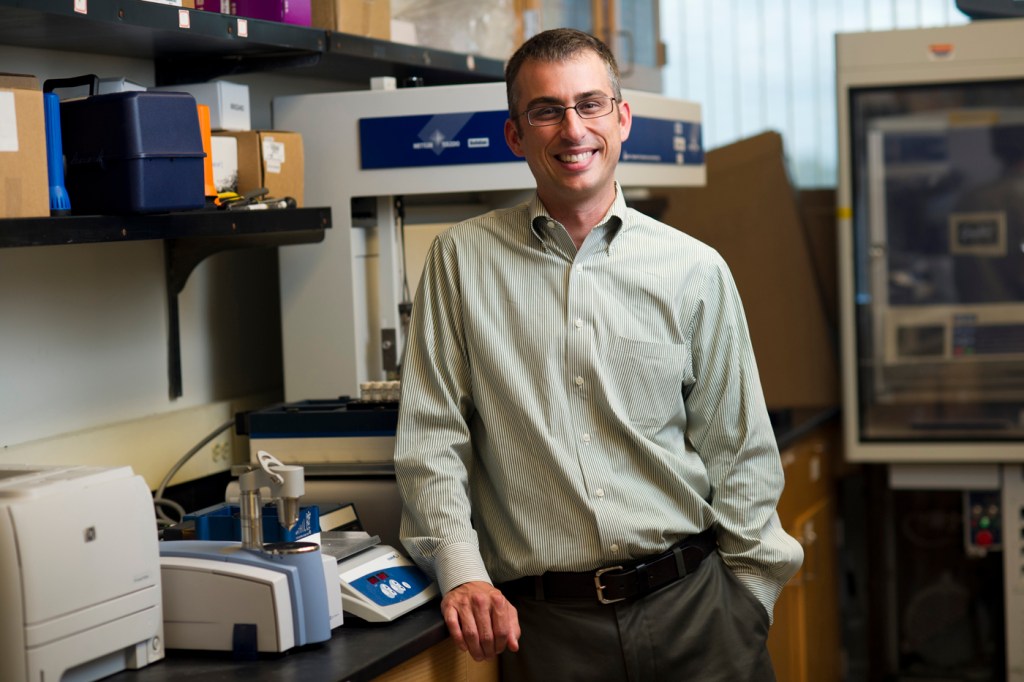New grant to advance sleeping sickness treatment research

In October, we wrote about associate professor of chemistry and chemical biology Michael Pollastri’s new research that presented hundreds of promising starting points to treat Human African trypanosomiasis, also known as sleeping sickness. Now, Pollastri has landed a major grant from the National Institutes of Health to advance this research.
Through this five-year, $2.5 million award, Pollastri’s Laboratory for Neglected Disease Drug Discovery and his colleagues at the Spanish National Research Council for Scientific Research will be able to more rapidly develop and test compounds derived from the nearly 800 compounds they previously identified as good options for treating sleeping sickness.
“The best part is we got all those great starting points, and now we have the funding to turn them into lead compounds,” Pollastri said.
Sleeping sickness, found only in sub-Sahara Africa, is a deadly disease that is transmitted by tsetse flies and affects between 10,000 and 30,000 people annually. The World Health Organization designated it as one of 17 neglected tropical diseases.
The next steps: Pollastri’s lab will build the compounds and send them to Spain, where researchers will test them and study their effects on the parasites. Pollastri said he and his colleagues can now make more derivatives of the compounds and try to improve their potency and properties so they can be developed as drugs that could be advanced to clinical trials.
“When a project isn’t funded it takes a longer time for development because everyone is doing it like a back burner kind of job,” Pollastri said. “We are now able to do it as our primary focus.”
Originally, Pollastri’s team, working with GlaxoSmithKline and Dr. Miguel Navarro with the Spanish National Research Council, identified these 800 promising compounds by screening more than 42,000 chemical compounds against the parasites that cause sleeping sickness. That work focused on inhibitors that block the process of phosphroyl transfer, which is mediated by enzymes called kinases. Kinase inhibitors, he explained, have been historically pursued for potential treatment of some cancers and inflammatory disorders.
Repurposing kinase inhibitors is an expanding theme in Pollastri’s group. Funded by a separate NIH grant, his team continues to collaborate with investigators at the University of Georgia to repurpose compounds related to the breast cancer drug Tykerb.





